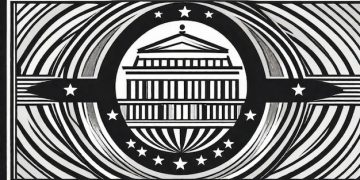Federal interest rate hike: what it means for you

The federal interest rate hike directly impacts loans and savings by increasing borrowing costs while potentially offering higher returns on savings accounts, making financial management critical during these changes.
Federal interest rate hike can significantly influence your financial landscape. Have you ever wondered how these hikes affect your loans or savings? Let’s dive into the details and see what it means for you.
Understanding the federal interest rate
Understanding the federal interest rate is crucial for anyone looking to navigate the financial landscape. It plays a significant role in the economy and affects everything from loans to savings. Knowing how it works can empower you to make informed financial decisions.
What is the Federal Interest Rate?
The federal interest rate is set by the Federal Reserve, the central banking system of the United States. This rate influences the rates that consumers see on loans, mortgages, and savings accounts. When the Federal Reserve raises or lowers this rate, it has a ripple effect throughout the economy.
Why Does It Matter?
The impact of the federal interest rate extends beyond just banks; it affects your wallet. For example:
- If the rate goes up, borrowers may face higher borrowing costs.
- Interest rates on credit cards and mortgages can increase.
- Savings accounts may offer better interest rates, benefiting savers.
Changes in the federal interest rate can also influence spending habits. When rates are low, people are more likely to borrow and spend, stimulating the economy. Conversely, higher rates may lead to less borrowing and spending as consumers and businesses adopt a more cautious approach.
The federal interest rate also reflects the overall economic health of the country. A higher rate typically indicates that the economy is strong, while a lower rate may suggest challenges or weaknesses. Understanding this relationship can help you anticipate changes in the economy and adjust your financial strategies accordingly.
How interest rate hikes affect loans
When interest rates rise, the effects on loans can be significant for borrowers. Understanding how these changes impact various types of loans is essential for managing personal finances.
Impact on Mortgage Loans
With each increase in the federal interest rate, mortgage rates typically follow suit. This means that new homebuyers may face higher monthly payments. For existing homeowners, refinancing becomes less appealing due to higher rates, which can restrict options for accessing equity in their homes.
- Higher monthly payments lead to increased financial strain.
- Less interest in refinancing can slow the housing market.
- This could prompt some buyers to delay purchasing a home.
The consequences extend beyond just monthly payments. Higher mortgage rates may also impact the overall housing market, leading to slower growth in home prices.
Effects on Student Loans
Student loans can also feel the impact of rising interest rates. Federal student loans often have fixed rates, but private loans can adjust based on market rates.
- Increased rates can lead to higher repayment amounts for new borrowers.
- Current borrowers with variable rates may see their payments increase.
- Students might reconsider their education financing options.
This change encourages students to explore scholarships or federal funding without loans. Understanding these shifts is crucial as they can affect long-term financial plans.
Additionally, personal loans and credit cards are affected in similar ways. As rates increase, personal loan borrowers might face larger loan costs, and credit card interest rates may rise, leading to higher outstanding balances. Staying aware of these changes helps borrowers make informed decisions about their debts and spending.
Impact on savings accounts and investments

The impact of rising interest rates on savings accounts and investments can be significant. Many people may not realize how closely tied these elements are to the federal interest rate. When rates go up, it creates both opportunities and challenges for savers and investors.
Effects on Savings Accounts
As the federal interest rate increases, savings accounts typically offer higher interest rates. This is great news for savers, as it means that their money can earn more over time. However, this also means that those looking for the best return on their investment should shop around for accounts that provide competitive rates.
- Higher interest rates attract more deposits.
- Long-term savings plans become more appealing due to improved yields.
- Online banks often offer better rates compared to traditional banks.
Even though higher rates benefit savers, the overall economic conditions can affect how much people are willing to save. During uncertain times, individuals may prefer to keep more cash on hand instead of locking it away.
Impact on Investments
For investments, higher interest rates can lead to mixed outcomes. While dividends from stocks or returns from bonds may increase, rising rates can also create uncertainty in the market. This uncertainty may lead to lower stock prices, as investors reassess how much they are willing to pay for future earnings.
- Higher rates can negatively affect stock markets.
- Bond prices typically fall when interest rates rise.
- Investors might shift towards bonds for better yields during rate hikes.
For many investors, the key is to adapt to the changing landscape. Knowledge of how interest rates influence these financial products can help in adjusting investment strategies accordingly. Understanding the balance between risk and return becomes even more crucial as interest rates rise and market dynamics shift.
What to expect from future rate changes
Understanding what to expect from future interest rate changes is vital for anyone managing their finances. The federal interest rate does not remain constant; it fluctuates based on economic conditions, inflation, and market demands. Anticipating these changes can help you prepare financially for the incoming effects.
Factors Influencing Future Rate Changes
Several key factors impact the decisions made by the Federal Reserve in regard to interest rate adjustments. These can include:
- Inflation rates: High inflation often leads to increased interest rates.
- Unemployment rates: A lower unemployment rate can pressure the Fed to raise rates.
- Overall economic growth: Indicators of strong growth may prompt higher rates.
Keeping an eye on these elements can provide insight into the direction of future changes. For instance, if inflation continues to rise, expect the Federal Reserve to take action to stabilize the economy.
Possible Rate Hike Scenarios
When predicting future rate changes, it’s essential to consider potential scenarios. For example, the Fed may choose to:
- Gradually increase rates to ensure economic stability.
- Implement sudden hikes in response to unexpected inflation spikes.
- Pause rate changes if the economy shows signs of slowing down.
These scenarios will directly affect how consumers and businesses operate. For individuals, borrowing costs may increase, leading to higher payments on mortgages and loans.
Additionally, businesses may adjust their investment strategies in response to rising rates. Companies often borrow for expansion and development, and higher rates could lead to a slowdown in growth. Therefore, understanding how these future changes might affect the economy can help both individuals and businesses make better financial decisions.
Tips for managing finances during rate hikes
Managing finances during periods of rising interest rates can be challenging. It becomes essential to make informed decisions to minimize the impact on your budget and savings. Here are some effective strategies to consider to help you navigate this time.
Create a Budget
First, review your budget to see how increased rates might affect your expenses. Higher interest rates typically lead to higher loan payments.
- Track your spending to identify areas where you can cut back.
- Factor in potential increases in mortgage or loan payments.
- Set aside a portion of your income to manage upcoming changes.
Being proactive with your budgeting can help prevent financial stress when rates rise.
Consider Fixed-Rate Loans
If you are looking to borrow money, consider locking in a fixed-rate loan. This can shield you from fluctuations in interest rates.
- Fixed rates give you predictable payments over time.
- Evaluate different lenders for the best rates available.
- Don’t rush; look for the most favorable terms before making decisions.
Having a stable loan payment can make budgeting easier and reduce uncertainty.
Pay Down Debt
Another effective strategy is to pay down existing debts. Focus on high-interest debts first, as they can quickly become unmanageable if rates rise.
Reducing debt offers several benefits, including improved credit scores and lower overall payments. It’s wise to prioritize paying off debts like credit cards and personal loans before rates increase further.
Moreover, keep an eye on interest rates for savings accounts. If rates increase, consider transferring some funds to accounts offering better returns. This way, you can earn more on your savings even while managing your expenses carefully.
In summary, understanding the implications of the federal interest rate hike is essential for managing your finances effectively. By creating a solid budget, considering fixed-rate loans, and paying down debt, you can navigate the changes ahead. Staying informed about how rate hikes impact savings and investments will empower you to make better financial decisions. Remember that preparation is key in times of economic uncertainty, and adjusting your strategies can lead to more financial stability.
FAQ – Frequently Asked Questions about Interest Rate Hikes
How do interest rate hikes affect my mortgage?
Interest rate hikes usually lead to higher mortgage rates, which can increase your monthly payments and potentially limit your borrowing options.
What should I do if I have variable-rate loans?
If you have variable-rate loans, consider paying down debt as quickly as possible or refinancing to a fixed-rate loan to protect against future rate increases.
Will rising interest rates affect my savings accounts?
Yes, higher interest rates can increase the returns on savings accounts, making it a good time to shop for accounts with better rates.
How can I manage my finances during rate hikes?
Create a budget, pay down high-interest debt, and consider locking in fixed-rate loans to manage your finances during periods of rising rates.





